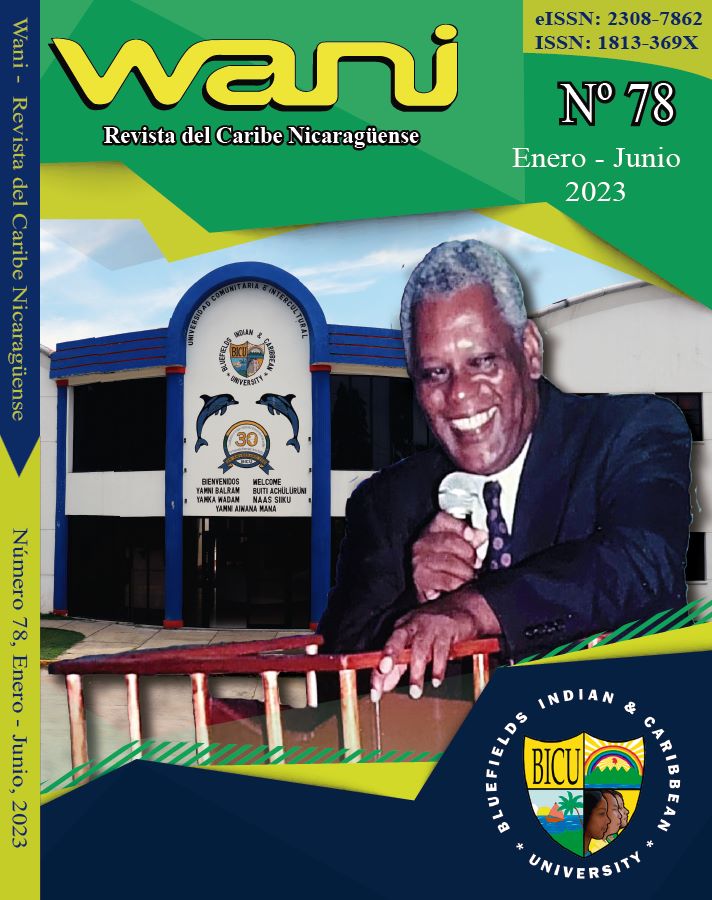Evaluación de sistemas de producción mediante indicadores de sustentabilidad en el caribe norte nicaragüense
DOI:
https://doi.org/10.5377/wani.v39i78.15850Palabras clave:
Agroecología, sustentabilidad, finca faroResumen
Se estudió la sostenibilidad de los sistemas productivos en las fincas agropecuarias de la comunidad Nazaret I, con la metodología MESMIS que permitió la comparación del funcionamiento de los diferentes componentes de los sistemas productivos en los ámbitos sociales, económicos y agroecológicos, caracterizándolas en tres categorías A, B y C. La investigación tiene un enfoque cualitativo, en tanto se desarrolló bajo un modelo de indicadores de sustentabilidad de fincas agroecológicas. Desde las dimensiones estudiadas, los resultados muestran que no existe equidad de género, porque las mujeres son excluidas en las tomas de decisiones; los hombres consideran que éstas solo pueden manejar la producción de aves y la alimentación de cerdos. La economía es de subsistencia y su recurso principal es el suelo; comercializan subproductos como la leche, huevos y carne. Los sistemas de producción implementados son agropecuario y agrosilvopastoril. Los estados agroecológicos que se presentan en estas fincas son tres: nivel bajo (La Colina, con poca área forestal), nivel intermedio (Caño Limón) y nivel avanzado (El Marañón). Esta última se considera una finca faro, en tanto puede ser ejemplo en la implementación de prácticas agroecológicas sustentables.
Descargas
Publicado
Cómo citar
Número
Sección
Licencia
Derechos de autor 2023 Bluefields Indian and Caribbean University

Esta obra está bajo una licencia internacional Creative Commons Atribución-NoComercial-CompartirIgual 4.0.

